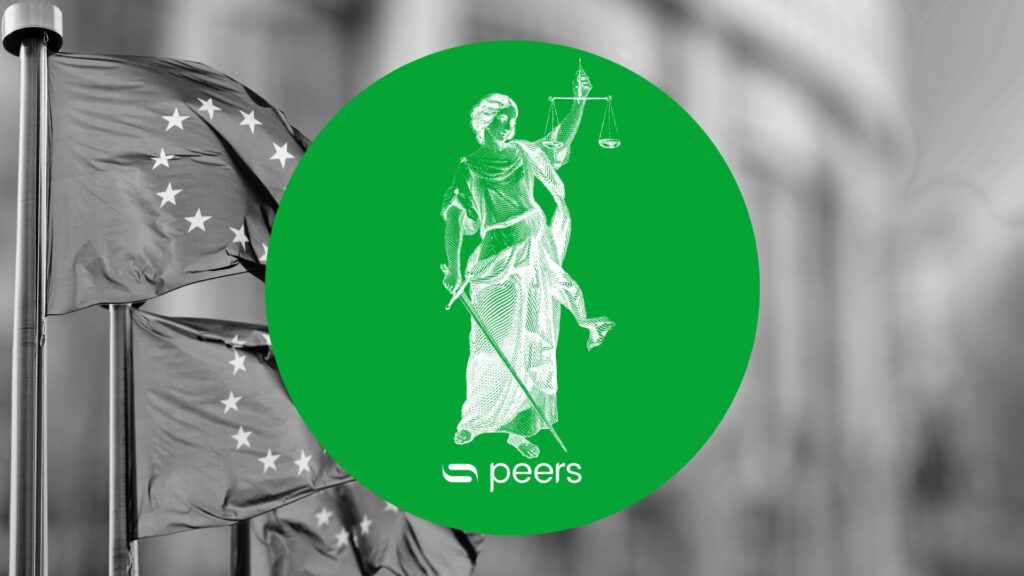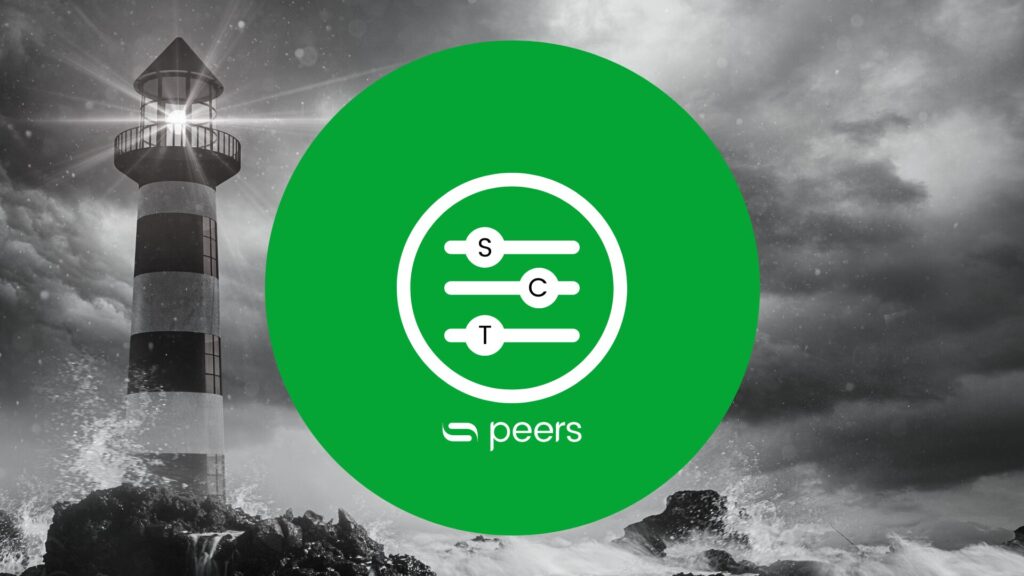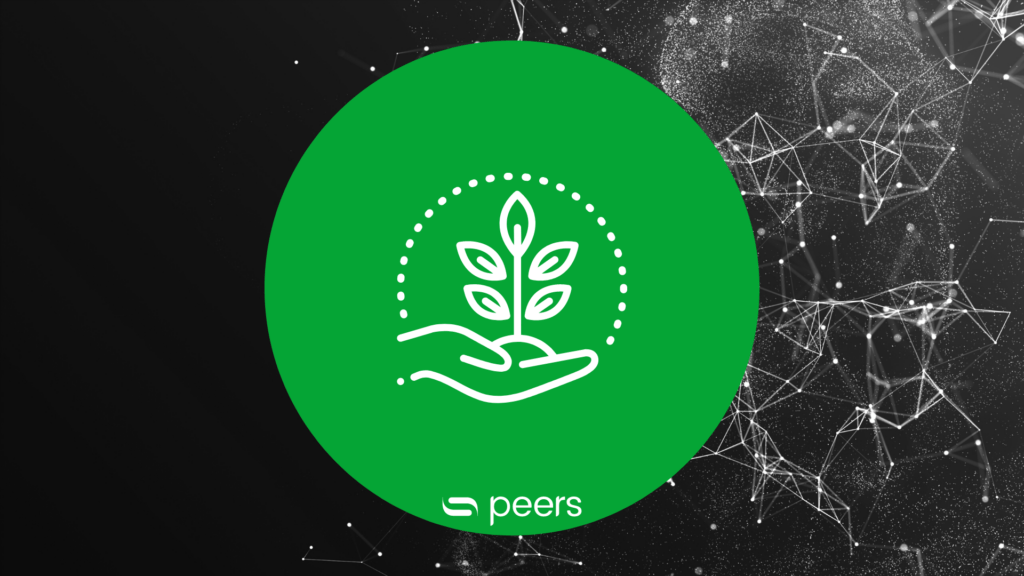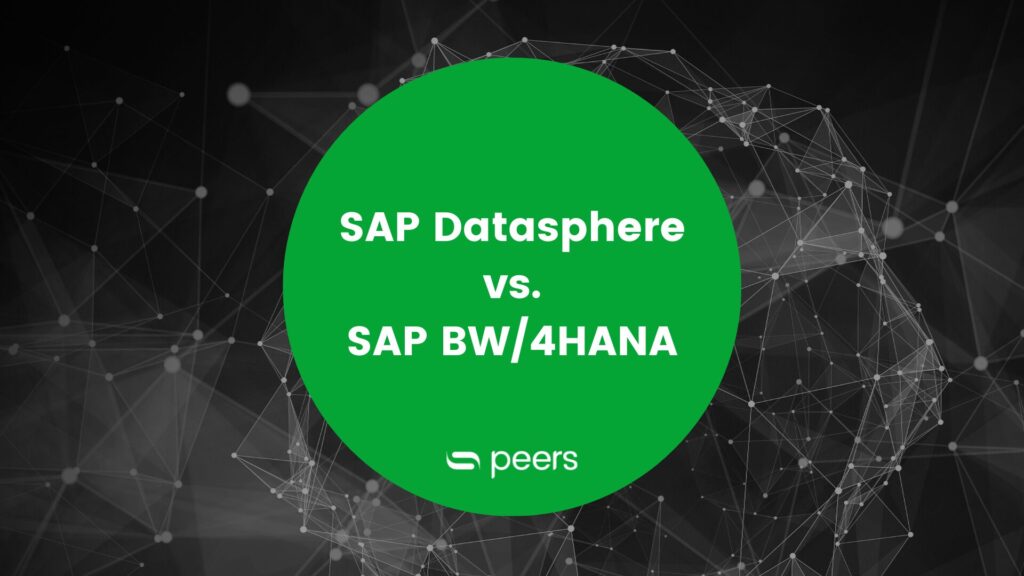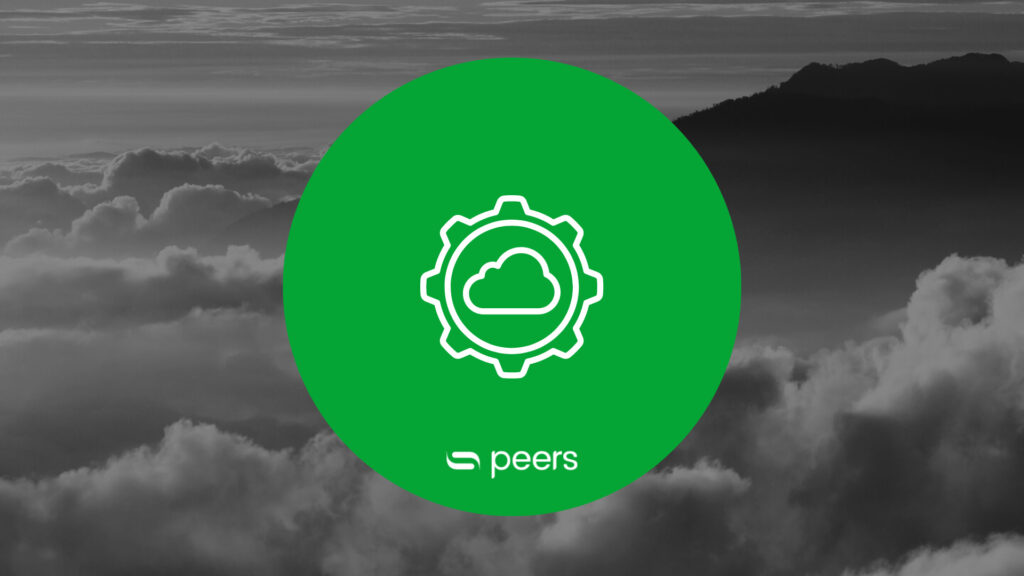ESG Reporting: Importance, Relevance and SAP Solutions
- Reporting, Sustainability Solutions
- esg, Reporting, Sustainability
- 5 min reading time

Anna Burger
ESG is now more than just a trend - companies are using it to demonstrate the importance they attach to the topic of sustainability in their organization and how they are fulfilling their responsibility with regard to environmental and social issues. What ESG means and how companies can integrate such reporting into their business processes is illustrated in the following knowledge article.
Table of contents
What is ESG reporting?
"ESG reporting is the disclosure of environmental, social and corporate governance information. As with all disclosures, the purpose is to highlight a company's ESG activities, increase transparency for investors, and encourage other organizations to do the same."[1]
In contrast to sustainability, which refers to a company's relationship with the environment, ESG reporting, by definition, extends this relationship to social responsibility and corruption using qualitative and quantitative information. On the one hand, companies have the opportunity to communicate their activities using various metrics. On the other hand, investors receive assistance in evaluating the performance and risks of the company in question. Sustainability thus takes the motivational role in the company, while ESG is the reported output.[2]
Environment
E stands for Environment and refers to what an organization does to protect the environment. Environment includes, for example, topics such as waste disposal, water protection and CO₂ emissions. What is a company doing to combat climate change and reduce emissions? How can an organization act responsibly with resources and its supply chain? These and other questions are being asked by companies that consider the environmental aspect in the context of ESG and thus hold themselves accountable.[3]
Social
The social element of ESG reporting describes what a company does to optimize social life. Various factors such as data protection, privacy or initiatives to promote gender equality play an essential role here. Companies take up these viewpoints to engage socially and promote employees as well as jobs.[4]
Governance
The last letter of the acronym ESG stands for governance, which is an organization's efforts to curb corruption and ensure that its business-related investments are based on sustainability in the future. Governance guidelines and procedures, board design, lobbying and whistleblower programs are just a few of the perspectives that emerge.[5]
Why is ESG reporting needed?
Current trends in internal and external ESG reporting are outlined below.
What opportunities does ESG reporting offer?
The consideration of ESG criteria in business operations offers advantages resulting from innovative products or services, the development of new markets, higher resource efficiency and/or greater resilience to external developments. Given the high economic importance of ESG reporting, it can be assumed that investors with a long-term investment horizon in particular demand as transparent and detailed a report as possible on the key ESG criteria of a company's operations in order to be able to assess its future viability.[6]
Why is ESG reporting becoming increasingly important?
Apart from the opportunities offered by ESG reporting, many companies are now required by law to address the issue. The Corporate Sustainability Reporting Directive, or CSRD for short, requires companies in all sectors of the economy to publish ESG sustainability reports. Organizations that are already covered by the current CSR Directive must prepare the reports for the first time for the 2024 financial year and publish them in 2025. All other large companies will be required to report one year later. SMEs will be covered from 2026. Companies headquartered outside the EU with annual sales of at least €150 million will have to comply with similar requirements.[7]
What are the advantages for companies?
Research has shown that companies that perform well on ESG criteria generate higher returns on average and weather times of crisis better. In addition, ESG criteria are increasingly becoming the focus of business as investors scrutinize these reports more closely to more accurately identify investment risks. Companies that commit to optimizing their performance on ESG criteria and documenting their progress demonstrate to investors that they are committed to minimizing their risks and generating sustainable, long-term returns on capital. In contrast, companies that fail to provide transparency on ESG criteria, in the worst case scenario, forfeit the trust of (potential) investors.[8]
ESG reporting software using the example of SAP
Sourcing and integrating data from SAP and non-SAP applications into a central data warehouse provides a suitable basis for future-oriented ESG reporting. Whether it is a matter of synchronizing one's own supply chain planning in real time to ensure business continuity in the event of failures in the supply chain or optimizing governance in the company to mitigate the risk of fraud - SAP has already been dealing with the topic of ESG reporting for some time. This is illustrated by examples below.[9]
ESG reporting in Switzerland
Swiss companies are not yet subject to the legal changes described in chapter 2.2, but will have to adapt to similar restrictions in the long term. With SAP Product Footprint Management, for example, product footprints can be calculated throughout the entire product life cycle. can be calculated throughout the entire product life cycle. This in turn facilitates the management of emission factors and thus supports the company in reducing its own footprint.[10]
SAP Environment, Health, and Safety Management, on the other hand, helps ensure sustainable and safe operations through integrated environment, health, and safety (EHS) management. Whether it's a proactive safety culture, reduced regulatory reporting burden, or a safer workplace, this modular and unified platform integrates with other SAP solutions and can be accessed from anywhere.[11]
An insight into all product lines can be found here.[12]
ESG reporting in Germany
Since Germany is subject to EU directives, SAP has also launched suitable products on the market to ensure compliance with legal requirements. Those who want to achieve sustainable corporate goals with holistic sustainability management are well served by the SAP Sustainability Control Tower, for example. Here, data from SAP and non-SAP applications can be transferred to a central sustainability data warehouse, which then serves as the basis for calculating granular sustainability indicators along existing structures, for example, from finance, sales and HR. This enables holistic management with actionable insights and efficient reporting, which in turn builds trust with stakeholders.[13]
On the other hand, with the SAP Integrated Business Planning for Supply Chain (SAP IBP) solution, a company covers future demand using logistics analyses, alerts, etc. in an exceptionally profitable way. This cloud-based solution is powered by SAP HANA and dovetails sales and operations planning (S&OP), demand-driven replenishment, forecasting and demand planning, among others. Supply chain disruption is no longer a problem, as the company can meet current and future challenges.[14]
These and other products can be found here.[15]
Requirements
Sustainability Analytics offers an optimal approach for a sound and holistic implementation of the sustainability strategy based on SAP technology. Sustainability goals can be specifically interlinked with SAP data, measured and evaluated. As a result, companies can continuously map emerging or current sustainability aspects operationally in the processes and data streams that are relevant for ESG reporting. This has a direct impact on the IT/SAP infrastructure. A holistic solution for data and control-relevant key performance indicators becomes necessary - because future-proof corporate strategies require the support of new and sustainable business models as well as flexible reactions to market changes. Agility and flexibility are therefore required, especially in the transformation of SAP architectures, in order to be able to serve the respective analytical use cases. Reporting based on process-related data as well as the associated planning to influence KPIs in the future is a standard use case for integrated SAP solutions.[16]
Conclusion
As ESG is a reporting framework, it has so far been particularly relevant for listed companies that want to attract investors. However, ESG reporting is also likely to be of interest to other organizations, for example due to downstream resource efficiency, higher returns and greater resilience in times of crisis. Now that the law has been amended, ESG reporting is also coming into focus for numerous companies that are not listed on the stock exchange. In this context, several service providers have already entered the market to support the sustainable transformation process of companies - including SAP. For example, sustainable customer experiences based on reliable data are no longer a dream of the future. This creates the conditions for sustainable consumption and ultimately meets the requirements of the market and stakeholders[17
List of sources
[1-5] https://www.wolterskluwer.com/de-de/expert-insights/the-abcs-of-esg-reporting#:~:text=Under%20ESG%2DReporting%20understanding%20man,to%20move%2C%20to%20do%20the same%20thing.
[6] https://www2.deloitte.com/de/de/pages/audit/articles/esg-reporting.html
[7] https://buse.de/insights/esg-eu-nachhaltigkeitsberichtspflicht-fuer-den-mittelstand/
[8] https://www.eliaspublisher.com/blog/esg-reporting-der-naechste-grosse-trend-der-unternehmenskommunikation
[9] https://news.sap.com/germany/2021/07/unternehmen-mehr-nachhaltigkeit/
[10] https://www.sap.com/swiss/products/scm/product-footprint-management.html
[11] https://www.sap.com/swiss/products/scm/ehs-management-health-safety.html
[12] https://www.sap.com/swiss/sustainability/climate-action.html#featured-solutions
[13] https://www.sap.com/austria/products/sustainability-control-tower.html
[14] https://www.sap.com/austria/products/scm/integrated-business-planning.html
[15] https://www.sap.com/austria/sustainability/esg-reporting.html#esg-solutions
[16] https://www.sap.com/germany/products/sustainability/steering-reporting.html
[17] https://www.sap.com/investors/de/esg.html
Further reading
- https://bankinghub.de/research-markets/esg-reporting
- https://www.eliaspublisher.com/blog/esg-reporting-der-naechste-grosse-trend-der-unternehmenskommunikation
- https://news.sap.com/germany/2021/07/unternehmen-mehr-nachhaltigkeit/
- https://news.sap.com/swiss/2022/06/sap-schweiz-pionier-fuer-nachhaltige-mobilitaet/
- https://www.sap.com/investors/de/esg.html
- https://www.sap.com/austria/products/sustainability-control-tower.html
- https://www2.deloitte.com/de/de/pages/audit/articles/esg-reporting.html
- https://www.sap.com/austria/sustainability/esg-reporting.html#esg-solutions
- https://www.sap.com/swiss/products/scm/product-footprint-management.html
Would you like to delve deeper into this topic or do you still have open questions about ESG reporting? Then we look forward to a personal exchange on the topic. Simply get in touch with us!
More information on the topic of sustainability can also be found in other Wiki articles.


Published by:

Anna Burger
SAP Analytics consultant

Anna Burger
How did you like the article?
How helpful was this post?
Click on a star to rate!
Average rating 5 / 5.
Number of ratings: 3
No votes so far! Be the first person to rate this post!


